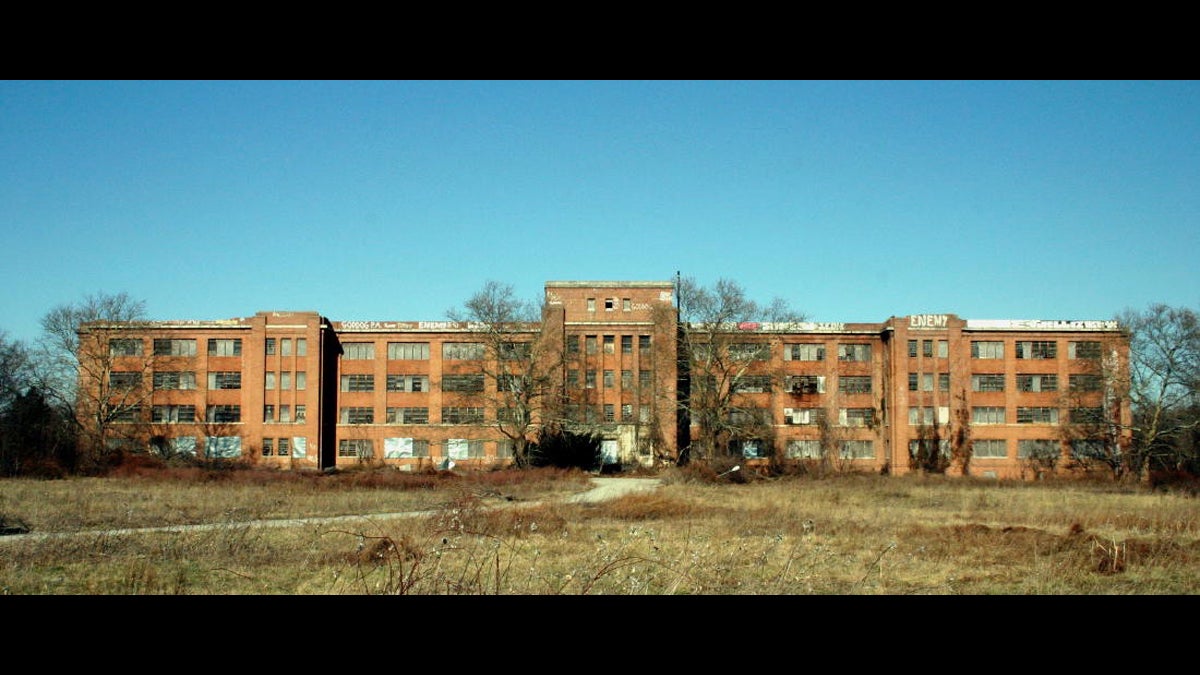UPenn medical ethicist makes case for more psychiatric hospitals

Philadelphia State Hospital, also known as the Byberry mental asylum (Photo by John Webster)
The Pennsylvania Department of Corrections recently settled a lawsuit that requires sweeping reforms in caring for inmates with serious mental illness.
Mental health experts have lauded the step, but some caution that it means another issue has to be addressed.
University of Pennsylvania chief medical ethicist Zeke Emanuel argues that as state psychiatric hospitals have closed down – prisons have become the new go-to institution for people with mental illnesses. He calls this “trans-institutionalization” rather than the deinstitutionalization activists had fought for.
“As we rethink the prison situation and this is happening now, this mental health part is going to have to be rethought too,” said Emanuel. “We’ll have to build alternative institutions, or build or expand the ones we do have,” he added.
In a new paper published in the Journal of the American Medical Association, Emanuel makes a case for bringing back or expanding state psychiatric hospitals.
The number of state psychiatric hospitals has been shrinking for decades — only about 40,000 beds are available nation-wide, compared to more than 500,000 in the 1960s. Emanuel says this psychiatric bed shortage has left a critical void. “We have not built the kind of institutions and funded them appropriately for the severely mentally ill who are a danger to themselves and a danger to the community, and we just have a big hole there that we have not addressed.” Instead, the hole has been filled by prisons, said Emanuel, a situation he called “unethical and unacceptable.”
Emanuel is not arguing for a return of the psych hospitals of the past, which tended to warehouse people and hold and treat them against their will. Fellow Penn medical ethicist Dominic Sisti, who co-authored the paper, said what is needed are modern day hospital settings that provide a safe haven for people in need of psychiatric care. “People are treated in a way that is patient-centric, with collaboration from the patient on their treatment plans,” he explained.
Sisti and Emanuel said that some states are already creating such settings, with Massachusetts leading the way.
Mental health advocate Joseph Rogers disagrees with the need for more beds. “What we need is early intervention to help us deal with this so-called ‘bed crisis,'” said the long-time advocacy officer for the Mental Health Association of Southeastern Pennsylvania. “We don’t need more beds, especially in Pennsylvania, we need diversion, we need to help people stop cycling in and out of psychiatric hospitals, they need step-down services, home-like setting with care. What we need is alternatives to hospitalization,” he said.
Mark Salzer, a researcher at Temple University who has studied these issues for more than two decades, agrees that trans-institutionalization has occurred, but towards nursing homes because of Medicaid reimbursement policies rather than the homeless system or jails and prisons. “The research clearly shows that the relationship between homelessness, incarceration, and serious mental illnesses is much more complicated than deinstitutionalization,” said Salzer. “Poverty, substance abuse, and other similar factors play a much larger role.” He argues that research shows that re-institutionalization decreases quality of life and is much more expensive than providing the necessary supports in the community. “There are many more sophisticated and effective efforts that could be taken to address this issue,” said Salzer.
WHYY is your source for fact-based, in-depth journalism and information. As a nonprofit organization, we rely on financial support from readers like you. Please give today.


